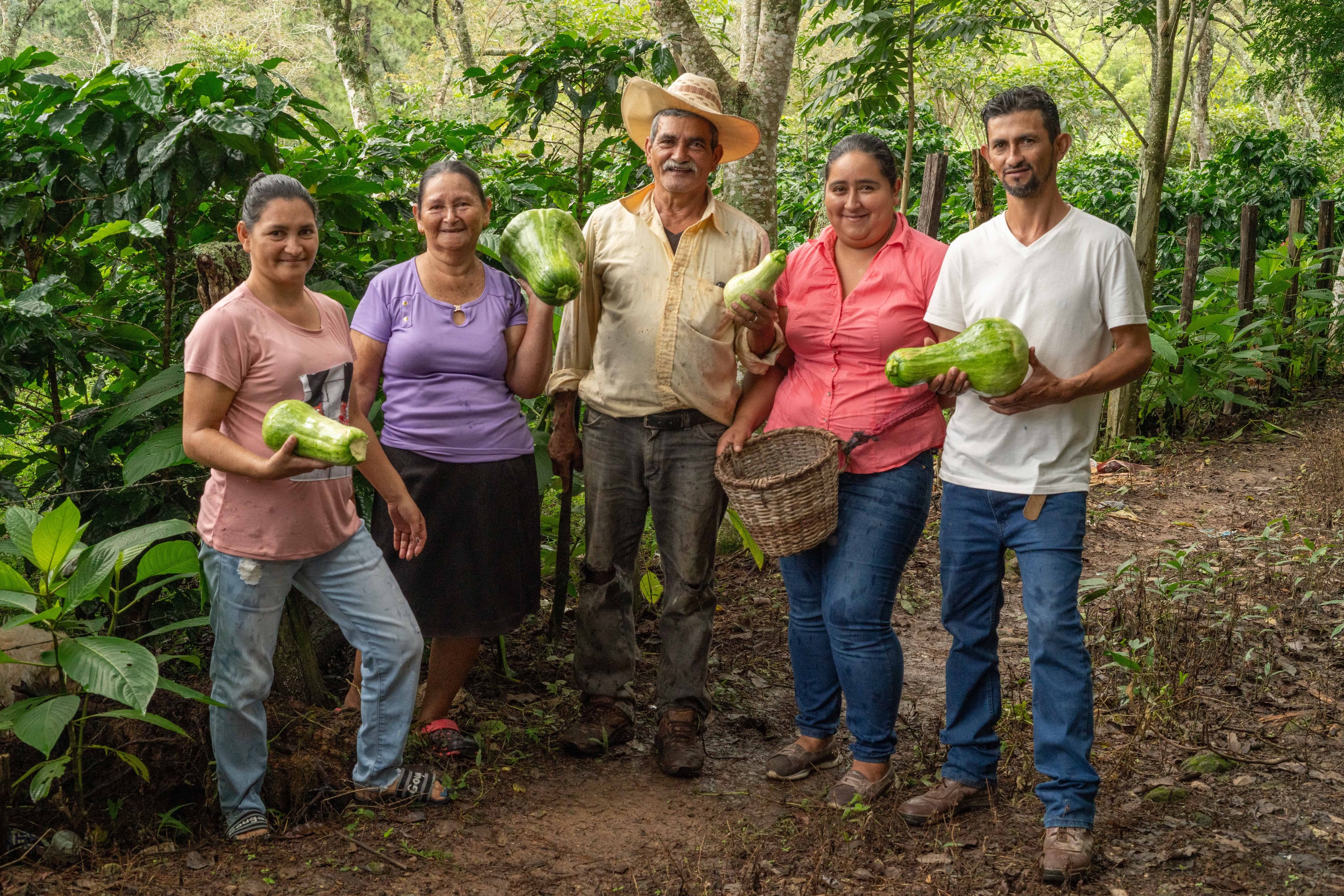
Press Release: International Coffee Partners (ICP) Publishes Annual Report 2023: Successes in Addressing Climate Change and Rising Production Costs to Support Smallholder Farmers
Hamburg, October 17, 2024. International Coffee Partners (ICP) has released its Annual Report for 2023, detailing the critical challenges faced by the global coffee sector and outlining the organization’s successes in supporting smallholder farming communities. In a year marked by climate change-induced disruptions, volatile markets, and soaring production costs, ICP worked closely with its implementing partner, Hanns R. Neumann Stiftung (HRNS), to promote sustainable farming practices, income diversification, and resilience-building initiatives across its focus countries.
In 2023, ICP reached 36,306 households in coffee farming communities through its projects, with an 80% adoption rate for Good Agricultural Practices, compared to 71% in 2022, and a 92% adoption rate for climate-smart agricultural practices, a notable increase from 88% in 2022. Women’s participation in project activities also grew, reaching 42% compared to 35% the previous year, further embedding inclusivity and gender equality across ICP’s focus regions. Through initiatives promoting income diversification and sustainable agricultural practices, ICP helped smallholder farming families stabilize their livelihoods despite challenging conditions.
The report highlights challenging conditions such as the severe impact of extreme weather events on coffee production in key regions such as Brazil, Central America, Ethiopia, and Tanzania. In Ethiopia, unusual rainfall patterns and even snowfall in some areas were reported, while Tanzania was heavily impacted by El Niño, leading to infestation of pests and diseases, flooding, and soil erosion. On the other hand, there were droughts, which triggered a reduction in yields and compromised coffee quality.
These adversities disproportionately affected smallholder farming families, whose livelihoods depend on coffee cultivation. With decreased incomes from reduced harvests and volatile market prices, many smallholders faced heightened financial insecurity, hindering their ability to invest in their farms, access resources, and support their families. Such circumstances underscored the urgent need for sustainable practices, resilience-building initiatives, and equitable market mechanisms to safeguard the welfare of coffee-dependent communities worldwide as they are being promoted and fostered in ICP projects.
ICP Focused on Agroecological Practices and Income Diversification to Foster Farmer Resilience against Challenges
In response to these pressing challenges, ICP prioritized promoting agroecological practices and encouraging crop and income diversification to strengthen the resilience of coffee farming households. Together with their implementing partner HRNS, ICP supported farmers in adopting sustainable practices and diversifying their sources of income, which not only mitigates financial risks but also enhances food security and economic empowerment. The organization also emphasized the importance of gender equality and youth involvement in all farming families to promote equitable and inclusive development.
For example, in Brazil, ICP introduced income diversification strategies like beekeeping and soybean cultivation, reaching 536 farmers through training, while improving coffee quality for access to specialty markets. In Honduras, over 2,400 families benefited from crop diversification with 67 plots and 170 household gardens, and 153 new businesses were created, 80% led by women. In Tanzania, youth entrepreneurship saw 56 launched businesses, while women’s participation in training rose to 57%, up from 46% in 2022. In Uganda, coffee yields improved from 1kg to 1.8kg per tree thanks to better farming practices introduced through the ICP project, and 400 farmers were trained in nutritional gardening. In Indonesia, women embraced activities like mushroom farming, boosting household cash flow, and in Ethiopia, joint family decision-making and financial literacy helped families strengthen resilience.
Since ICP’s founding in 2001, over 118,582 households have been reached across 13 countries, with 23 projects implemented to date. With an investment of €20.9 million from ICP shareholders since 2001, the organization has consistently focused on addressing the needs of smallholder coffee farmers while building long-term resilience through sustainable agricultural practices, income diversification, and inclusive community development focusing on gender equality and perspectives for youth.
Looking ahead to 2024, ICP remains focused on expanding its efforts to promote climate-smart practices, income generation, and food security, especially among vulnerable groups such as female-headed households.
Read the full report here: https://www.coffee-partners.org/annual-report-2023